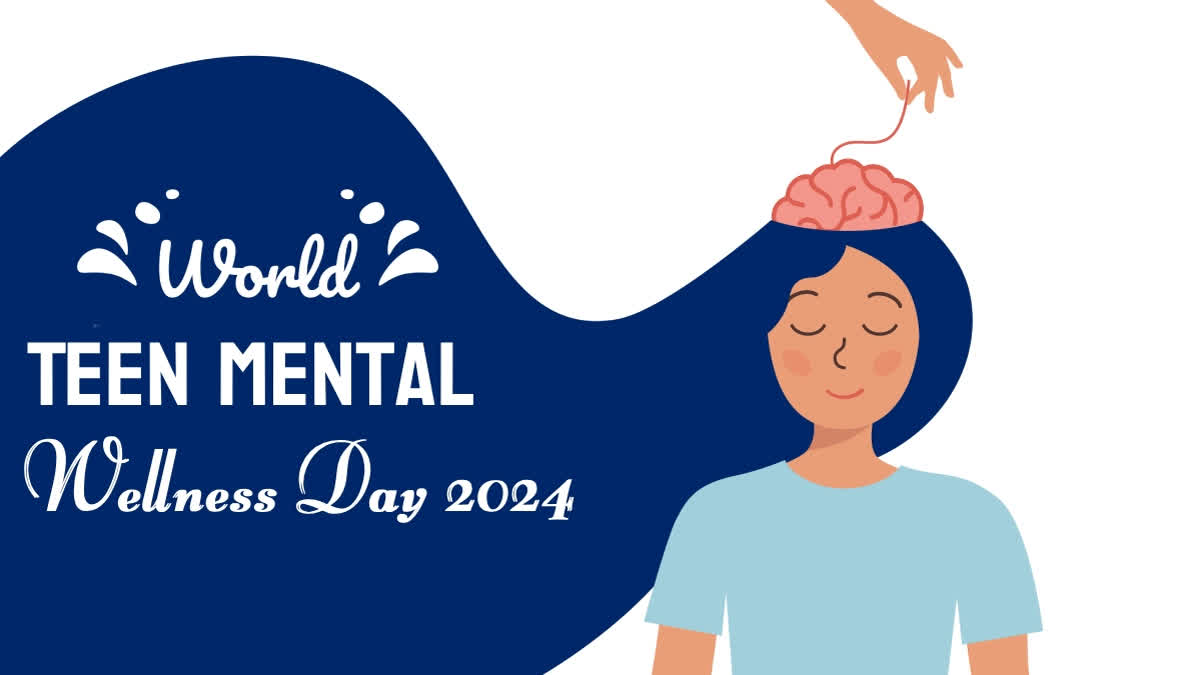Hyderabad: The World Teen Mental Wellness Day is observed across the globe on March 2 every year. It is a day that aims to raise awareness about the mental health issues that teenagers deal with.
This Day is about making efforts to educate everyone and destigmatise something that is becoming increasingly common. Observing this Day is all about ensuring that the teens are being supported and cared for in a way that benefits their mental well-being.
History - In 2020, Hollister founded World Teen Mental Wellness Day –– the first day dedicated to observing teen mental wellness. The Registrar at the National Day Calendar proclaimed the day to be observed on March 2nd, annually.
About the Hollister Confidence Project - The Hollister Confidence Project is a 365-day-a-year people-powered initiative dedicated to helping all teens worldwide feel their most confident, comfortable and capable. The Hollister Confidence Fund gives grants to nonprofit groups and projects focused on areas including teen mental health, equity for young Black, Indigenous, and People of Color (BIPOC), safety and inclusion for LGBTQ+ youth, anti-bullying efforts and sustainability.
As per the Mental Health Foundation Report:
- 20 per cent of adolescents may experience a mental health problem in any given year
- 50 per cent of mental health problems are established by age 14 and 75 per cent by age 24
- 10 per cent of children and young people (aged 5 to 16 years) have a clinically diagnosable mental problem yet 70 per cent of children and adolescents who experience mental health problems have not had appropriate interventions at a sufficiently early age
Teen mental health needs extra attention because this is around the age that young people become more independent and potentially, withdrawn. Teenagers are going through the formative years of their lives as they experience changes in their physical and emotional states. They need support, encouragement, and a comfortable, safe environment so that they express themselves freely. Unfortunately, several teens do not have this kind of environment and so struggle to express themselves emotionally. This can have many negative effects, particularly on their mental health. Additionally, identifying and beginning to resolve mental health issues from an early age can be hugely beneficial for the individual.
WHO response - WHO works on strategies, programmes and tools to assist governments in responding to the health needs of adolescents. The Helping Adolescents Thrive (HAT) Initiative is a joint WHO-UNICEF effort to strengthen policies and programmes for the mental health of adolescents. More specifically, the efforts made through the Initiative are to promote mental health and prevent mental health conditions. They are also intended to help prevent self-harm and other risky behaviours, such as the harmful use of alcohol and drugs, that harm mental and physical health.
WHO has also developed a module on Child and Adolescent Mental and Behavioural Disorders as part of the mhGAP Intervention Guide 2.0. This Guide provides evidence-based clinical protocols for the assessment and management of a range of mental health conditions in non-specialised care settings.
WHO is developing and testing scalable psychological interventions to address emotional disorders of adolescents and guidance on mental health services for adolescents.
Youth mental health awareness in India - Over 50 per cent of the youth (18-24 years old) in India have poor mental health, according to a report by Sapien Labs Centre for the Human Brain and Mind. The report, titled ‘Mental State of India: Internet-enabled Youth’, notes that the mental health of young people in the country has deteriorated during the pandemic.
In 2020, the average MHQ (Mental Health Quotient) of youth was 28, whereas it dropped to 20 in 2023. Sapien Labs found that the average MHQ of youth remained lower across income groups. The MHQ of a young person earning less than Rs 1 lakh annually was 10, whereas the MHQ of 45-54-year-olds who earned the same was 73. Similarly, the MHQ of youth who earned more than Rs 10 lakh was 24, whereas the MHQ of 45-54-year-olds who earned the same was 94.
Improving Child and Adolescent Mental Health in India - PROJECT UDAYA: UDAYA is a first-of-its-kind study on adolescents in India. Understanding the lives of adolescents and young adults in Bihar and Uttar Pradesh (UDAYA) is a comprehensive research on adolescents in India that establishes the levels, patterns and trends in the situation of younger (10-14) and older (15-19) adolescents. The Population Council is conducting UDAYA, with financial support from the Bill and Melinda Gates Foundation and the David and Lucile Packard Foundation.
Rashtriya Kishor Swasthya Karyakram: Rashtriya Kishor Swasthya Karyakram is a national program launched in 2014 with the objective of improving the health and well-being of adolescents in India, including their mental health.
How Parents Can Improve Teen Mental Health - Use a Balanced Parenting Style: Parents’ best bet is to use a balanced parenting style when raising a child because this approach to parenting leads to better mental health. This parenting style balances warmth and rules, so teens know they are cared for even when they make a mistake.
Teach Teens How to Cope with Stress - What matters is how we cope with the stress. When stress becomes overwhelming, it can lead to poor mental health. Teens need proper sleep, nutrition, and exercise to manage stress.
Role Model Self-Care - Taking care of yourself is a strategic act of parenting because it models self-care. Taking time to enjoy hobbies and relax is vital to maintaining your health and well-being.
Know the Signs - While it’s common to see our teens dealing with stress, we may not always realise when there’s more at play. Teens rely on adults to identify the signs that they may be dealing with anxiety or depression and steer them towards help.
Seek Professional Help - Reaching out for professional help is a sign of strength. Sometimes, the problems in our lives become so overwhelming that we need help from someone with special training in counselling or therapy. They can support our ability to cope.


